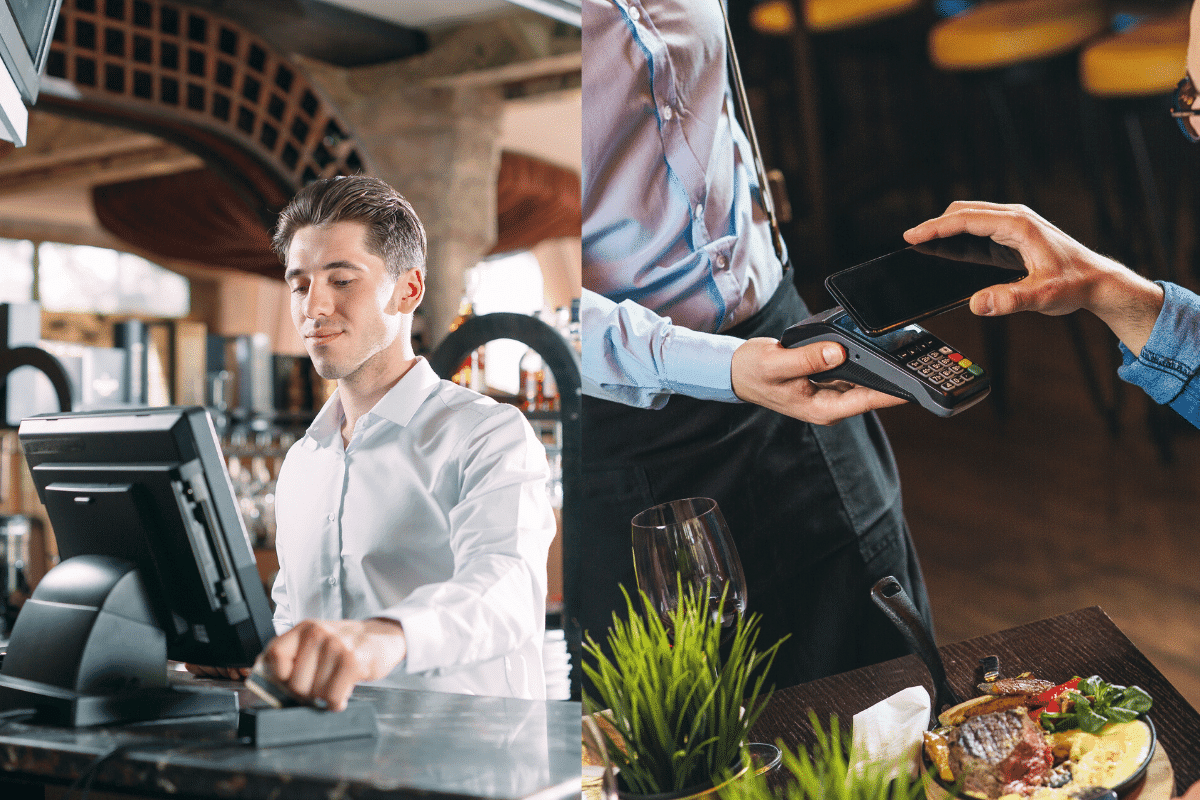Credit card spending has risen a whopping 88% since 2009, up to a total of $6.7 trillion in 2019 alone. Successful entrepreneurs must therefore be equipped to accept credit card transactions as a core part of their businesses.
Most business owners do this through a credit card terminal or a point-of-sale (POS) system. Each of these devices will allow you to process credit card transactions, which is why the two terms are sometimes used interchangeably.
But there are some major differences between credit card terminals and POS systems. Understanding these differences can improve the way you do business. Here, we’ll explore the functions of each device.
Credit Card Terminal
Most credit card terminals have one singular purpose: to process credit and debit card payments. The more advanced terminals also known as smart terminals offer many additional options, like entering discount codes, coupons, text invoicing, loyalty programs, remote access, and much more, but for the purposes of this article, we will focus on standard terminals vs POS systems.
Credit card terminals come in a variety of types, which gives business owners added flexibility when processing transactions. Common tools include:
- Countertop terminals.
- Mobile card terminals.
- WiFi card terminals.
- 4G wireless terminals.
- Virtual terminals.
Virtual terminals are used for processing orders made by phone or online. Although they are more advanced than other kinds of credit card terminals, they are not the same as an online payment system. They still require merchants and employees to enter the credit card information manually.
POS System
A point-of-sale system is considerably more advanced than a credit card terminal. If a credit card terminal could be compared to a standard calculator, a POS system is more similar to an entire computer.
A POS system allows businesses to collect credit card payments from their customers, but they also have additional functions that can include:
- Easy access to menu or inventory.
- Calculating sales tax.
- Processing discounts.
- Collecting customer data.
- Tracking sales and recording data.
- Managing inventory.
- Managing staff.
- Multi-location solution.
- And much more depending on the POS system.
A POS system includes two components: the software that runs the system and the hardware used to interact with it. The hardware is used to read the credit card, record the transaction, then pass the data along to a payment processor.
The payment processor is independent of the POS system itself, though the two work closely together, but usually one provides the equipment, and the other provides the processing.
The final result? Merchants have access to clear, accurate sales data that can be used for long-range planning.
Benefits of a POS System
According to Forbes, your POS system can be your “best business advisor.” It’s easy to see why. POS systems can help you:
Make Accounting Easier and More Accurate
With a POS system, all of your transactions are stored within the system. Cloud-based POS systems make it especially easy to integrate with your accounting software, which makes it simple to keep up with your books.
POS systems also minimize errors made during inventory entry, which can save you headaches when you reconcile your books or plan for taxes.
Track Inventory
A POS system can often provide your business with an inventory management system, which can keep track of the products you sell and the dates on which they are sold. This can help you predict seasons of increased demand, let you know when to restock a particular item or give insight on when to offer a discount to reduce excess inventory.
Manage Sales Data
Managing sales data helps you understand your cash flow, but it also helps your valued customers. Your POS system makes it easy to look up previous sales, which can be an added convenience for your customers, as well as your employees.
Reduce Errors
Finally, a POS system can work to pop up notifications about errors in a transaction. This can make it easier to train employees to process sales correctly.
Manage Staff
Today’s POS systems can do more than process customer transactions. They also offer a human resources component that can be used to manage staff, handle scheduling, and increase productivity. This can help you reduce labor costs and help you to find ways to use your staff members more efficiently.
Perform Instantaneous Updates
Does your business have multiple locations? Restaurants, for example, often have to maintain menu items across several locations. Even eCommerce stores can sometimes list the same product on multiple category pages.
A POS system can integrate with your other software, allowing you to update menus with the touch of a button, saving you time and ensuring accuracy across every area of your business.
Accept Every Payment
While a POS system offers many benefits and solutions, it’s not always the best solution for every business type. Businesses that do not require the options offered by a POS system may be better served with a more cost-effective and very capable smart terminal.
At Finical, we make it our mission to help business owners accept every type of payment. We offer our clients services and solutions that include:
- A free smart credit card terminal.
- Wide variety of POS systems.
- Tailored solutions that align perfectly with your business type.
- 24/7 customer support.
Ready to get started? Contact us today and see how our innovative solutions can help you grow your business.


